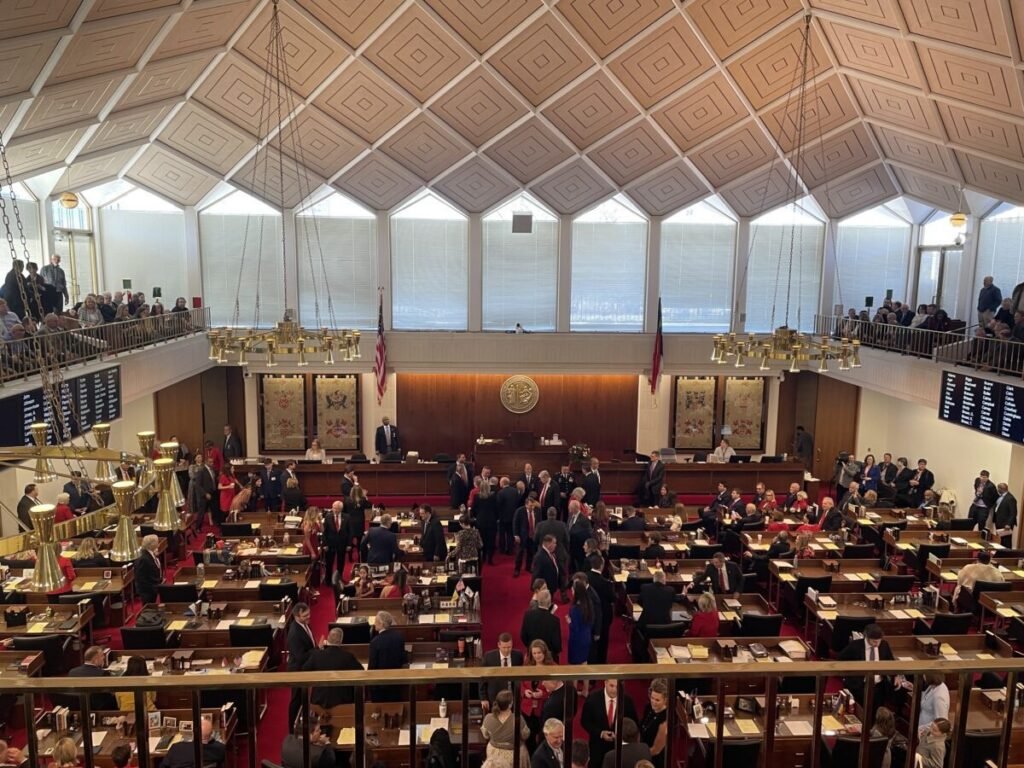Bull City Citizen Investigates the Political and Economic Fallout of the State’s Recovery Efforts
RALEIGH – The North Carolina House of Representatives has approved two key bills aimed at helping western North Carolina recover from the devastation of Hurricane Helene, but some lawmakers and local officials argue the relief falls far short of what is needed.
The first measure, a $500 million relief package, received unanimous support (116-0), despite being less than half of the $1.1 billion requested by Democratic Gov. Josh Stein. The second bill, which would increase the state’s unemployment benefits from $350 to $450 per week, passed by a nearly unanimous 115-1 vote.
Bipartisan Support, But Growing Concerns Over Insufficient Funding
Western North Carolina lawmakers, including Democratic Reps. Brian Turner, Lindsay Prather, and Eric Ager, said they backed the relief bill but warned that the state must act quickly to provide additional funding.
“We keep hearing that federal funds are coming,” Ager said. “But if they are coming, they’re coming awfully slow. We need the money now.”
Prather echoed this concern, emphasizing the real-life consequences of delayed relief.
“Every single day in western North Carolina, residents are making decisions about whether to stay, return, or leave permanently,” she said. “Businesses are deciding whether to reopen or just cut their losses.”
Republican House leaders defended the $500 million figure, arguing that allocating too much money upfront could lead to waste and mismanagement. House Majority Leader Rep. John Bell, R-Wayne, said the state must take a “strategic” approach to recovery, suggesting that additional funding could be considered in future bills.
Delayed Disaster Relief and Lingering Storm Damage
Even as the legislature focuses on Hurricane Helene, North Carolina is still working to rebuild homes and infrastructure damaged by Hurricanes Florence (2018) and Matthew (2016). Stein’s administration has asked for $200 million to complete those rebuilding efforts, but Republican lawmakers remain noncommittal on whether the full request will be approved.
“This has been a disaster after the disaster,” House Speaker Destin Hall, R-Caldwell, said. “We just can’t have that kind of result in North Carolina in 2025, where folks are still out of their homes nine years later.”
The second major bill passed Tuesday, House Bill 48, seeks to increase North Carolina’s weekly unemployment benefits from $350 to $450 statewide. The bill is particularly crucial for western North Carolina, where the economy relies heavily on tourism.
Businesses devastated by Hurricane Helene are struggling through a slow winter season, and many remain at risk of permanent closure as they await the lucrative summer months.
The $600 Debate: Should Benefits Be Higher?
Immediately after Helene, then-Gov. Roy Cooper (D) issued an executive order raising unemployment benefits to $600 per week, nearly doubling the standard rate. That emergency order expires in March, and under a law passed in late 2024, newly elected Gov. Josh Stein (D) no longer has the power to extend it.
House Bill 48 prevents benefits from reverting to $350 per week, but Democrats pushed for the $600 rate to remain permanent. Rep. Tim Longest, D-Wake, introduced an amendment to keep the higher rate, but it was defeated along party lines.
“North Carolina’s $350 rate is among the lowest in the nation,” Longest argued. “Keeping it at $600 would bring us in line with Texas and Nebraska.”
Republicans, however, opposed making the $600 rate permanent, citing concerns that it would quickly drain the state’s unemployment trust fund and potentially lead to higher taxes on businesses.
Rep. Julia Howard, R-Davie, who sponsored House Bill 48, defended the compromise, stating that the state has billions in reserves but should not risk overextending those funds.
What’s Next?
The relief and unemployment bills now head to the Republican-controlled Senate, where further debate and modifications are likely. While the House has signaled that more funding could come in future budgets, residents and business owners in storm-ravaged western North Carolina remain in limbo.
For ongoing investigative coverage on North Carolina’s disaster recovery efforts, economic policies, and political developments, stay with the Bull City Citizen – your trusted source for in-depth reporting.












